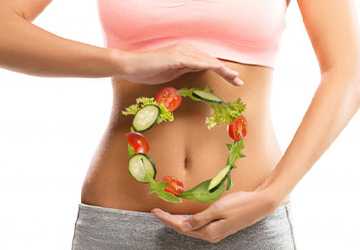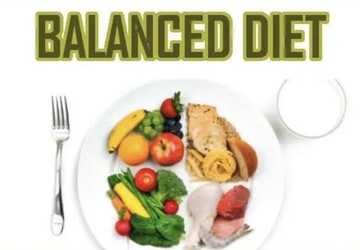Top 10 Essential Vitamins and Minerals for Women
It's no secret that women are extraordinary creatures with unique nutritional needs, and a balanced diet is the cornerstone of a healthy life. Ensuring your body gets the right vitamins and minerals is vital to overall health.
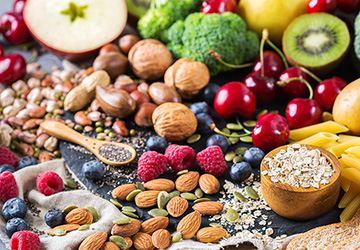
From maintaining bone health to supporting a robust immune system, these top 10 vitamins and minerals for women are designed to help you look your best. Let's delve deeper into nutrition and discover the secrets to healthy living.
1. Vitamin D
Vitamin D, often called the "sunshine vitamin," is essential for maintaining healthy bones and teeth. It helps the body absorb calcium, a necessary mineral for bone health. Women, especially those who live in areas with minimal sun exposure, are at higher risk for vitamin D deficiency. This deficiency can lead to osteoporosis, so maintaining healthy vitamin D levels is especially important for women.
To increase your vitamin D intake, spend some time outdoors in the sun and eat foods rich in vitamin D, such as fatty fish, fortified dairy products, and eggs.
2. Calcium
Calcium is essential for strong bones and teeth, but its importance continues beyond that. It also supports muscle function, neurotransmission and blood clotting. Women, in particular, must focus on maintaining optimal calcium levels to reduce the risk of osteoporosis and maintain overall health.
Include dairy products, dark leafy greens, almonds and fortified foods to ensure you get enough calcium. If you are lactose intolerant or have a milk allergy, many calcium-fortified, dairy-free alternatives are available.
3. Folate (Folic Acid)
Folic acid, often called folic acid when taken as a dietary supplement, is vital for women of childbearing age. It is essential for cell division and neural tube development in the developing fetus. Adequate folic acid intake before and during pregnancy can help prevent congenital disabilities of the brain and spine.
Folic acid is found in green leafy vegetables, citrus fruits, legumes and fortified cereals. It's a good idea for women who are planning to become pregnant to take a folic acid supplement to ensure they are getting enough of this essential nutrient.
4. Iron
Iron is vital for women because they are at higher risk of iron deficiency due to menstruation and, in some cases, pregnancy. Iron is an essential component of haemoglobin, the protein in red blood cells that carries oxygen to tissues throughout the body. Iron deficiency can lead to anaemia, characterized by fatigue, weakness, and reduced immune function.
Eat iron-rich foods such as lean red meat, poultry, legumes, and fortified cereals to maintain healthy iron levels. Combining these foods with foods rich in vitamin C, such as oranges or strawberries, can help improve iron absorption.
5. Vitamin C
Vitamin C, also known as ascorbic acid, is a powerful antioxidant that plays a vital role in maintaining skin health, connective tissue, and blood vessels. It is also known for its immune-boosting properties, which can help women prevent common diseases.
Citrus fruits, strawberries, kiwi and peppers are excellent sources of vitamin C. Incorporating these fruits into your diet ensures you get your daily dose of this vital nutrient.
6. Vitamin A
Vitamin A is essential for maintaining optimal vision, promoting a robust immune system, and promoting proper cell growth. It also involves the skin's and mucous membranes' health, which is essential for women.
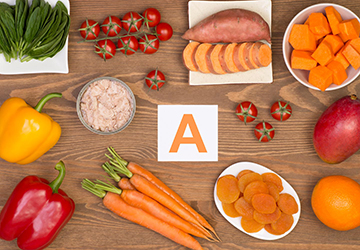
You can find vitamin A in sweet potatoes, carrots, and dark leafy vegetables. These foods provide you with vitamin A and other beneficial nutrients.
7. Vitamin E
Vitamin E is a powerful antioxidant that helps protect cells from free radical damage. It also includes immune function, skin health and wound healing. For women, vitamin E is especially helpful in promoting healthy skin.
Add nuts, seeds, and vegetable oils to ensure you get enough vitamin E. These foods also contain healthy fats that can positively impact your overall health.
8. Magnesium
Magnesium is a mineral involved in more than 300 biochemical reactions in the body. It is essential for maintaining normal muscle and nerve function, supporting a healthy immune system, and regulating blood sugar levels. It's also crucial for bone health and may help reduce osteoporosis in women risk.
Eat almonds, spinach, avocados, and whole grains to increase your magnesium intake. Magnesium supplements are also an option, but it's best to talk to your doctor before starting a new supplement regimen.
9. Vitamin K
Vitamin K is essential for maintaining normal blood clotting, especially for women during menstruation and pregnancy. Additionally, vitamin K is vital in promoting bone health by regulating calcium levels in the body.
To increase your vitamin K intake, consider eating green leafy vegetables like kale and spinach and vegetables like broccoli and Brussels sprouts. Maintaining an adequate supply of vitamin K can significantly contribute to a woman's health and well-being.
10. B vitamins (B6, B12)
B vitamins, including B6 and B12, are vital to women's health. They are essential in maintaining a healthy nervous system, supporting energy production, and forming red blood cells. In addition, B vitamins aid in the synthesis of DNA and RNA.
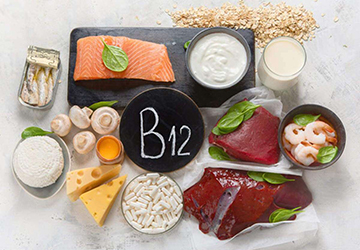
Vitamin B6 is easily obtained from chickpeas, poultry, and salmon, while vitamin B12 is primarily found in animal products such as meat, dairy, and eggs. If you follow a vegetarian or vegan diet, consider taking a B12 supplement to meet your nutritional needs.
Conclusion
Maintaining a healthy, balanced diet is vital to women's health, and ensuring the right combination of vitamins and minerals is essential. The top 10 vitamins and minerals mentioned in this article are critical to women's health, from bone strength to immune function to skin health.
Consider these essential vitamins and minerals as your constant companions on your journey to optimal health, helping you live a life of energy, vitality, and thriving. So harness the power of nutrition and take responsibility for your health – you deserve it!



